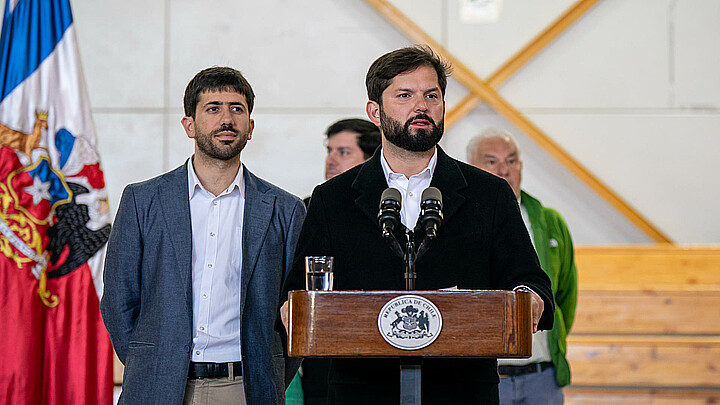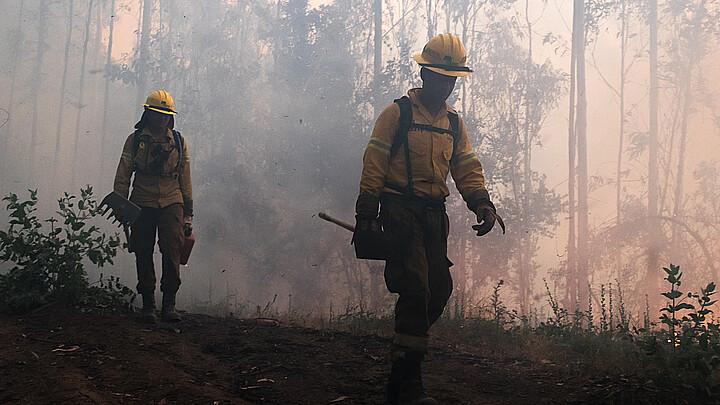Politics
Boric urges Biden to invite Latin American dictatorships to Summit of the Americas
Boric’s government wants the summit to bring all of the region’s players to the table, despite the differences “and alternative convictions that may exist in the area of human rights"
May 16, 2022 2:22pm
Updated: May 16, 2022 2:25pm
Chile’s leftist President Gabriel Boric has joined the leaders of Argentina, Bolivia, Brazil and Mexico in calling on the Biden administration to invite the delegations from Cuba, Nicaragua and Venezuela to participate in the U.S.-hosted Summit of the Americas next month.
According to Chile’s Minister of Foreign Affairs Antonia Urrejola, Boric will attend the regional summit in Los Angeles in June but is urging President Biden to include all of the region’s countries in the meeting.
Speaking to reporters from La Tercera, Urrejola explained that Boric’s government wants the summit to bring all of the region’s players to the table, despite the differences “and alternative convictions that may exist in the area of human rights regarding some governments,” DW reported.
“We believe that that it is also a time to have a space for dialogue beyond differences,” she said, adding that delegations should use the opportunity to discuss the lingering pandemic-related economic crisis.
The State Department announced last month that the Cuban, Nicaraguan and Venezuelan regimes will likely be excluded from the Summit of the Americas – a regional summit set to be held in Los Angeles in June.
Speaking to a small group of reporters, U.S. Assistant Secretary of State Brian Nichols said “they are unlikely to be there,” adding that the summit was open to the Western Hemisphere’s democracies.
Latin America’s three dictatorships will not be the only delegations missing when the United States hosts the Ninth Summit of the Americas between June 6-10, however – sparking concerns that the summit could be "Biden's next foreign policy embarrassment."
In recent days, the presidents of Bolivia, Brazil and Mexico have also threatened to pull out of the summit, further demonstrating the strained relations between Latin America and the Biden White House.
On Tuesday, Mexico’s leftist President Andrés Manuel López Obrador warned that he will not attend next month’s summit unless the United States invites Cuba, Nicaragua and Venezuela.
"Participation in the Los Angeles Summit has not yet been resolved because we are proposing that no one is excluded because we seek the unity of all America," López Obrador told reporters in Mexico City.
"We feel that there should be no confrontation. Even with the differences, we must dialogue, all Americans, then we are yet to resolve this issue; we have a very good relationship with the government of President Biden. We want everyone to be invited. That's the position of Mexico," he added.
Bolivia’s socialist President Luis Arce echoed AMLO’s demands on Wednesday and said he would also skip the summit unless all parties were invited by the United States.
"A Summit of the Americas that excludes American countries will not be a full Summit of the Americas, and if the exclusion of sister nations persists, I will not participate in it," Arce wrote on Twitter.
Similarly, Brazilian sources have said that conservative President Jair Bolsonaro said he will not attend the summit, although he did not say why.
A spokesman for Brazil's Foreign Ministry said no decision has been taken yet, but noted that "the president's attendance is being studied and is not confirmed.”
But officials from the three excluded countries have also spoken out against the U.S.’ decision to block their attendance.
Cuba’s Foreign Minister Bruno Rodriguez said last month that the United States’ decision to exclude Cuba from summit preparations amounts to a setback for relations, just weeks after officials from both countries held high-level meetings for the first time in four years.
Tensions between Washington and Havana have remained high under President Biden and the administration has repeatedly alleged that the Cuban regime has systematically violated the rights of those who took to the streets to protest the regime last July.
Nichols also said that Maduro’s government would not likely be invited, but added that it was up to the White House to decide whether Venezuela’s interim-President Juan Guaido would be invited instead.
The U.S. official expressed "deep respect" for Guaido's "interim government" and said the political and economic situation in Venezuela would be discussed at the summit. Maduro has held on to power since 2014 despite U.S. sanctions thanks to the financial, military and political support for countries like Russia, China and Iran.
It is also unsurprising that Nicaragua is set to be excluded as the United States has been at odds with dictator Daniel Ortega – a former Marxist guerrilla – who won a fourth consecutive term in November after jailing political rivals and cracking down on press freedom.
"It's clear Nicaragua has ceased any semblance of democracy in the wake of the sham election," Nichols said.
When asked if El Salvador might also be excluded, Nichols declined to respond, simply saying, “we are very much concerned by the erosion of democratic institutions."








